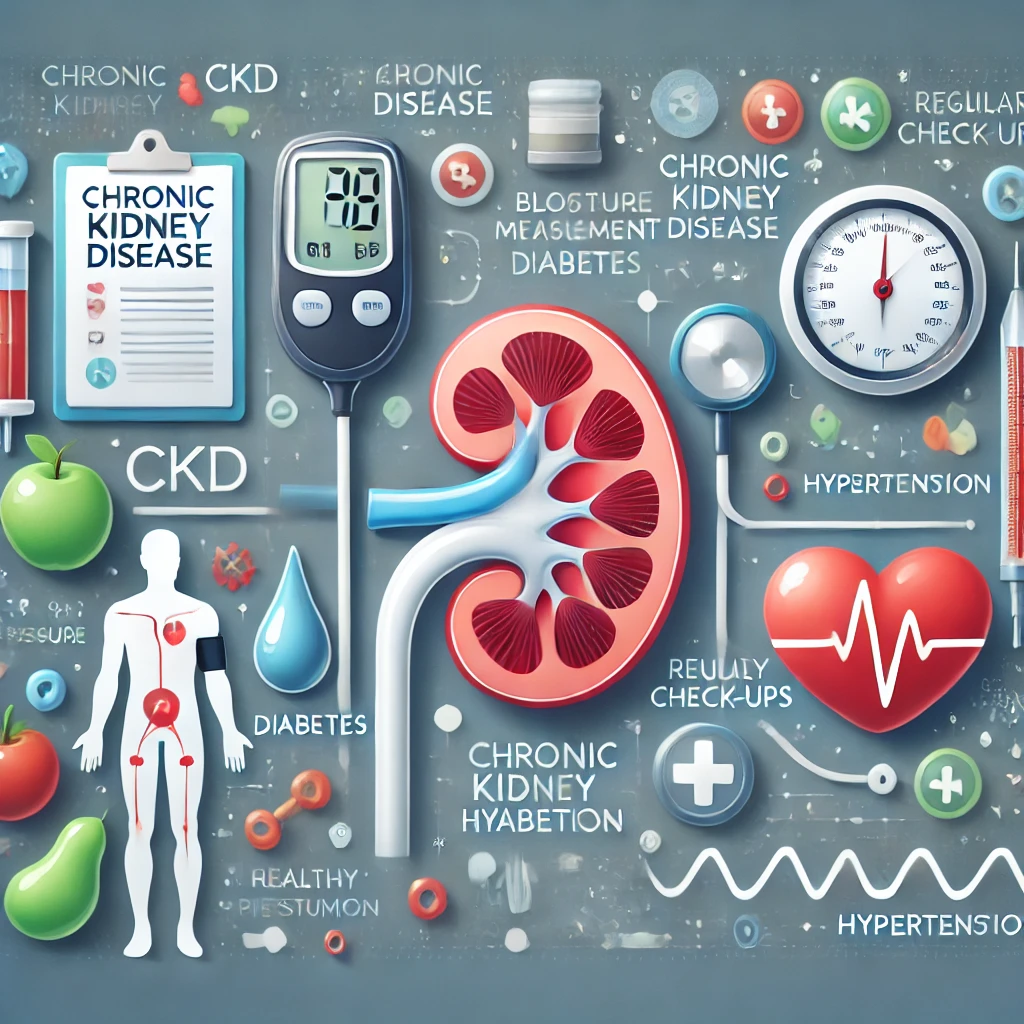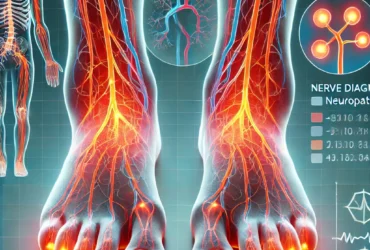Chronic Kidney Disease (CKD) is a long-term condition where the kidneys gradually lose their function over time. In Nepal, CKD is becoming increasingly prevalent and is often linked to other common health conditions such as diabetes and hypertension. If left untreated, CKD can lead to kidney failure, a condition that requires dialysis or kidney transplantation.
Causes and Risk Factors
The primary causes of CKD in Nepal are:
- Diabetes: High blood sugar levels can damage the blood vessels in the kidneys, impairing their ability to filter waste from the blood.
- Hypertension: High blood pressure puts strain on the kidneys, leading to damage over time and contributing to CKD development.
- Infections and Stones: Chronic kidney infections or kidney stones can also lead to CKD.
- Family History and Genetics: A family history of kidney disease increases the risk of CKD.
- Other conditions: Obesity, smoking, and certain medications can increase the risk of CKD.
Symptoms of CKD
In the early stages of CKD, people may not notice any symptoms. However, as the disease progresses, the following symptoms may occur:
- Swelling of the feet, ankles, or hands
- Fatigue or feeling weak
- Changes in urination (e.g., more or less frequent, dark-colored urine)
- Shortness of breath
- Loss of appetite
- Nausea or vomiting
The Link Between Diabetes, Hypertension, and CKD
In Nepal, diabetes and hypertension are leading risk factors for CKD. Both conditions can damage the kidneys’ blood vessels, making it harder for them to filter waste. Many people with diabetes and hypertension may not be aware of the gradual kidney damage they are causing, which is why early detection and management are crucial.
Prevention and Management
The best way to prevent CKD is to manage underlying conditions such as diabetes and hypertension. This involves:
- Controlling blood sugar levels in diabetes
- Managing blood pressure through medications, lifestyle changes, and diet
- Maintaining a healthy diet rich in fruits, vegetables, and whole grains while reducing salt intake
- Exercising regularly to maintain a healthy weight and reduce the risk of other chronic conditions
- Regular check-ups to monitor kidney function, especially for those at high risk. Health packages like Executive Health Plan done annually can prevent CKD.
Treatment
If CKD progresses to later stages, more intensive treatment may be needed, including:
- Dialysis: A procedure to remove waste from the blood when the kidneys can no longer do so effectively.
- Kidney transplant: In severe cases, a kidney transplant may be required.
CKD in Nepal: The Need for Awareness
Despite its growing prevalence, CKD is often overlooked in Nepal, with many people not recognizing the early signs of kidney damage. Public awareness, regular screening, and early intervention are vital to reducing the impact of CKD in the country. A simple general check up like health packages done annually can prevent CKD or detected early to stop further progression of CKD.
Conclusion
Chronic Kidney Disease is a serious and often preventable condition that affects many people in Nepal. With the increasing rates of diabetes and hypertension, it is essential to raise awareness about CKD and promote healthy lifestyle choices. Regular check-ups and timely intervention can help prevent kidney damage and improve the quality of life for those affected.
For more information or to schedule a check-up, please contact us.
📞 01-4531078 or 01-4543386






